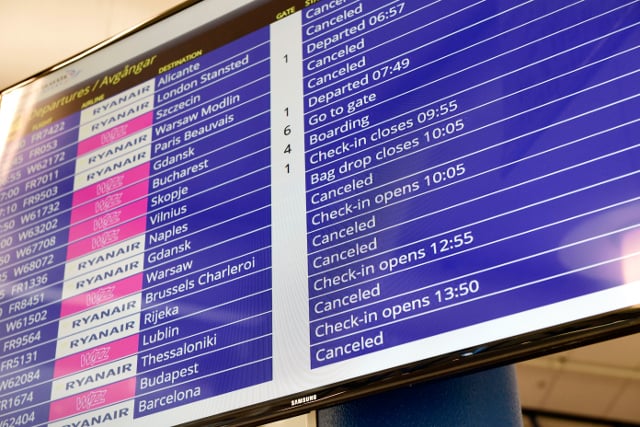Pilots in Ireland, Germany, Belgium and the Netherlands also joined the 24-hour strike over demands for a collective labour agreement and better working conditions and representation.
In Sweden, around 40 Ryanair pilots were striking until midnight between Friday and Saturday.
“Today our members are on strike to demand their rights. For decades Ryanair has refused their employees basic labour rights most employees on the labour market take for granted, but here a strike is necessary to show the airline that it no longer can avoid treating its employees in a dignified manner,” Martin Lindgren, President of the Swedish Pilots' Union, said in a statement.
Twenty-two flights which were due to depart or travel to Skavsta Airport south of Stockholm on Friday.
The airport usually welcomes around 700 travellers for the first few departures of the day, but on Friday morning the building was almost completely empty, news agency TT reported.
“We want to again apologize to customers affected by this unnecessary disruption and we ask the striking unions to continue negotiations instead of calling anymore unjustified strikes,” tweeted Ryanair.
Compensation can be claimed for some cancelled flights but it varies and depends on how much information was given in advance. For journeys under 1500km a maximum of €250 can be claimed (or €400 for flights between 1500 and 3,000km), but in the event that the airline directly warned passengers of their flight cancellation with 15 days' notice, there is no right to request economic compensation. More information can be found here



 Please whitelist us to continue reading.
Please whitelist us to continue reading.
Member comments